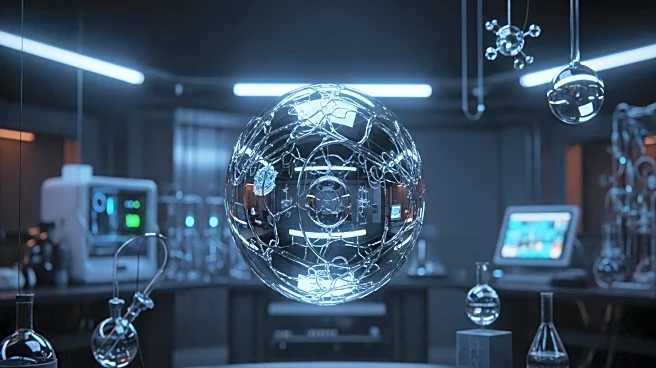What is the story about?
What's Happening?
Scientists are currently debating whether research into 'mirror life' organisms should be halted due to potential risks. These hypothetical life forms consist of molecules that mirror those found in regular life, posing a threat as they could become an unstoppable force, spreading without limits and overrunning natural organisms. A technical report from Stanford University highlights risks such as pandemics, crop losses, and ecosystem collapse. Despite these concerns, some experts argue that the risks are exaggerated, noting that synthesizing larger mirror molecules is still years away. The scientific community remains divided, with proponents suggesting potential benefits in drug development, while others caution against the dangers.
Why It's Important?
The debate over mirror life research is significant due to its potential impact on global ecosystems and human health. If mirror organisms were to escape laboratory settings, they could act as invasive species with no natural predators, potentially leading to widespread ecological disruption. The pharmaceutical industry could benefit from mirror molecules in drug development, as they might evade human immune responses. However, this resistance could also pose risks, allowing drugs to proliferate uncontrollably. The outcome of this debate could influence future research directions and regulatory policies in biotechnology and synthetic biology.
What's Next?
The scientific community is expected to continue discussions on the ethical and safety implications of mirror life research. Meetings sponsored by the Mirror Biology Dialogues Fund are ongoing, with some scientists choosing to abandon the research. Future steps may include setting regulatory guidelines or 'tripwires' to monitor developments in this field. The debate may also lead to increased scrutiny and oversight of synthetic biology research, potentially affecting funding and public perception.
Beyond the Headlines
The ethical dimensions of mirror life research are profound, raising questions about humanity's role in altering fundamental aspects of life. The potential creation of mirror organisms challenges existing definitions of life and could lead to philosophical debates about the nature of existence. Long-term, this research could shift scientific paradigms and influence cultural perceptions of biotechnology.

















